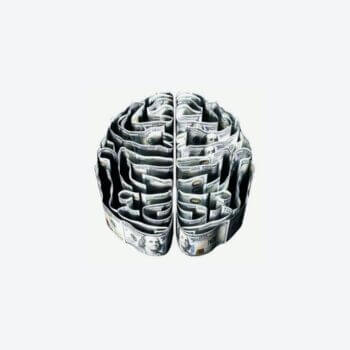Key Takeaway:
Your mental lexicon is a unique and personalized collection of words, influenced by your educational, professional, cultural, and other experiences. It varies in size from person to person and according to age, with the average American English speaker being around 42,000 words richer at 20 than at 60. The brain’s memory is dynamic and easily accessible, making it difficult to be like a physical dictionary. Word retrieval is a crucial part of language processing, with the left temporal lobe on the left side firing many neurons across the brain. However, the “tongue-of-the-mouth phenomenon” can lead to speech problems, such as aphasia and phonologically impaired individuals. Therapies like semantic feature analysis and phonomotor therapy can help improve word retrieval skills. Remember that your voice and identity are shaped by the words you use and the mental lexicon you possess.
You may forget about keeping a dictionary on your bookshelves. That being said, it’s acceptable because everyone carries a mental dictionary with them, not the one on their phone.
Your mental dictionary has word definitions, just like a physical dictionary does. This covers knowledge on parts of speech and how words join together to produce grammatical sentences in addition to the letters, sounds, and meaning, or semantics, of words. A thesaurus and your mental vocabulary are similar. By connecting words, you can determine how they might be similar in spelling, sound, or meaning.
Everybody has a slightly different mental lexicon. And what interests me even more is how, especially for those with language difficulties, we may enhance or restore the content of our mental dictionaries.
Humans are unique in that they can communicate through language, and I think everyone should have the opportunity to do so.
A physical dictionary is useful for exchanging information, but your mental dictionary is unique to you and your experiences. There may be some overlap between the terms in my mental vocabulary and the mental dictionary of another person who speaks the same language, but there will also be significant variances in the information included in each dictionary.
Words from your educational, professional, cultural, and other experiences enrich your mental lexicon. Because of this personalization, mental dictionaries range slightly in size from person to person and according to age. According to research, the average American English speaker is roughly 42,000 words richer at the age of 20 than they are at age 60. Some people’s vocabulary will be considerably larger.
You probably already picture your mental dictionary as a book with pages of terms arranged alphabetically that you may open and close as needed. Though there is much disagreement over the structure of mental dictionaries, this visual aid is useful. Several academics concur that it’s probably not comparable to an alphabetized book.
Researchers built an interactive brain map that shows which parts of the brain light up when certain phrases are heard.
According to a widely disproved theory called the grandmother cell theory, every concept is encoded by a single neuron. This suggests that each word you know, including “grandmother,” would have its own neuron.
The grandmother cell theory’s claim that some brain regions are more crucial for processing particular kinds of information than others is probably valid, even though it is not generally acknowledged as fact. For instance, word retrieval and production are two of the many areas of the left temporal lobe on the left side of your brain that are crucial for language processing. According to a theory known as parallel distributed processing, word knowledge is produced by the coordinated firing of many neurons across the brain, as opposed to a single neuron processing an idea.
For instance, even if you’re not aware of it, your brain is retrieving several different meanings when I pronounce the word “dog.” Perhaps you’re wondering what a dog smells like after it’s been outside in the rain, how a dog barks, or how a dog feels under your hand. You may be recalling a particular dog from your childhood or you may be feeling a range of feelings regarding dogs because of your past interactions with them. Your brain processes each of these distinct “dog” attributes in a little bit different areas.
Making use of your mental lexicon
Your mental vocabulary is dynamic and easily accessible, which is one reason it can’t be like a physical dictionary.
Word retrieval from your brain happens quite quickly. In one study, 24 college students’ word retrieval time courses were plotted by researchers using brain activity recordings made during picture naming. They discovered proof that participants made word choices 200 milliseconds after viewing the image. Following word selection, their brain kept processing information about the selected word, such as the sounds required to pronounce it and the absence of similar terms. This explains why you can recall words in real-time talks so quickly—often so fast that you aren’t even aware of the process.
Until your word retrieval breaks down. A typical breakdown in word retrieval is known as the “tongue-of-the-mouth phenomenon.” It’s the sensation of knowing the exact word you want to use but not being able to locate it at that precise moment. You may even be aware of specifics about the word you are looking for, such as related terms or even just the word’s initial letter or phoneme. If you give it enough time, the term you’re looking for may come to you.
These “tip-of-the-tongue” moments are common in human language experiences throughout life, and they get worse as one ages. This rise has been attributed, in part, to age-related disruptions in the ability to produce the necessary sounds to pronounce the target word.
However, speech problems such as tip-of-the-tongue can be extremely detrimental to certain individuals. This is frequently observed in aphasia, a language impairment that frequently develops following brain injury to the language centres, like a stroke, or neurodegeneration, like dementia. Phonologically impaired individuals frequently struggle with word retrieval.
Thankfully, there are therapies that can help someone become more proficient at retrieving words. Semantic feature analysis, for instance, aims to improve the semantic connections between words. Other therapies, such as phonomotor therapy, concentrate on improving the choice and articulation of speech sounds necessary for word creation. On PCs or phones, there are even apps that offer word retrieval treatment remotely.
Consider why you selected the particular phrases you did the next time you are speaking with someone. Recall that your voice and identity are shaped in part by the words you choose to use and the mental lexicon you possess.





























